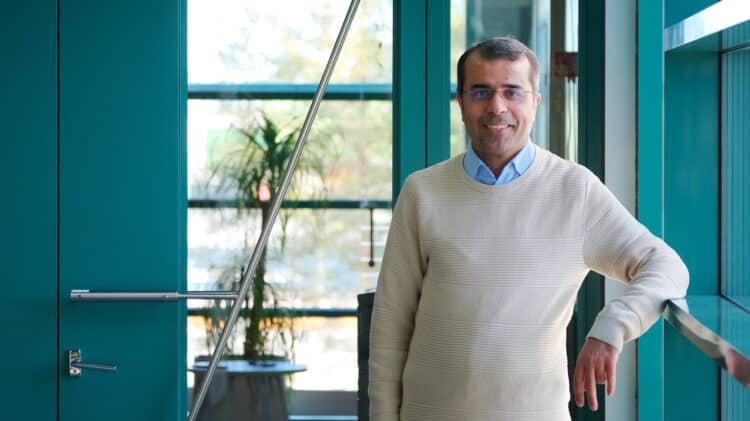🇫🇮 Green Energy and Industrial Innovation Powered by 6G
Press release from 6G Flagship

The EU is committed to the transformation towards green energy, emphasising policies that will provide citizens with secure, resilient and reliable sources of sustainable energy. Between 2020 and 2030, roughly 584 billion euros will be allocated to the EU electricity grids. A significant portion of this investment is devoted to digitalising energy systems.
In his talk at 6GESS Day, Associate Professor Mehdi Rasti discussed the EU’s energy policies and what needs doing. He highlighted four fundamental cornerstones of the energy transformation: decarbonisation, decentralisation, digitalisation, and democratisation.
Decarbonisation aims to reduce greenhouse gas emissions by 55% and achieve a 45% share of renewables by 2030. Decentralisation encourages the development of decentralised energy and efficiency opportunities by moving from a centralised system to a distributed network of assets. Digitalisation leverages smart technology to remotely operate complex systems, with sustainable business models utilising digital solutions to facilitate this transition. And democratisation empowers individuals to control their consumption and actively participate in the energy network, ultimately strengthening their involvement.
To drive the green transition forward and foster a more sustainable future, the EU’s ambitious goals include installing solar PV panels on all commercial and public buildings by 2027 and all new residential buildings by 2029.
Digitalisation is an essential facilitator of decarbonisation and decentralisation due to its incorporation of AI technology, data analysis capabilities, connectivity options, and hardware technologies. The prominent 6G trends, according to Rasti, are decentralised intelligence, edge computing, joint communication control and computation, and digital twin technology.
The advantages of digital twin technology in the digitisation of many industries are undisputed. The innovation will be a game-changer. To ensure the technology serves different verticals’ requirements correctly, key players must engage in discussions on technology development. They need to address critical issues like data access, interoperability, and cybersecurity before meaningful progress can occur.
The future trend is that a large part of the data future will come from the industrial IoT applications within private 5G or local 6G, which will drive new business models take place in the 5G and 6G.
The role of data in modernising energy as well as other verticals is undeniable. Having access to quality data is critical for intelligent decision-making and creating accurate digital twins. At present, obtaining this type of information is restricted, however. Presently only a few giant technology firms have access to a large part of the world’s data. “But the future trend is that a large part of the data future will come from the industrial IoT applications within private 5G or local 6G, which will drive new business models take place in the 5G and 6G,” Rasti estimated.
Establishing interoperability is a significant hurdle when investing in energy system digitalisation and digital twin technology. Experts from multiple areas, including energy system experts, must come together and settle on an agreed-upon system design and framework to permit effortless integration across industries. Regulatory bodies, in turn, are responsible for creating explicit rules regarding data sharing and user empowerment so users can be sure their rights will be protected.
Concerns related to privacy, cybersecurity, and resilience in the digitalisation of verticals need to be addressed. Rasti acknowledges that expanding digital platforms increases the risk of cyber-attacks. Achieving a balance between the potential risks and the benefits of digitalisation is needed.
For a deeper insight into sustainability-driven interactions of 6G and energy systems, check out Associate Professor Mehdi Rasti’s speech.
Originally published on 31 October by 6G Flagship.
Announcements are published as a service to readers. The sender is responsible for all content.
Announcements for publication can be submitted to [email protected].